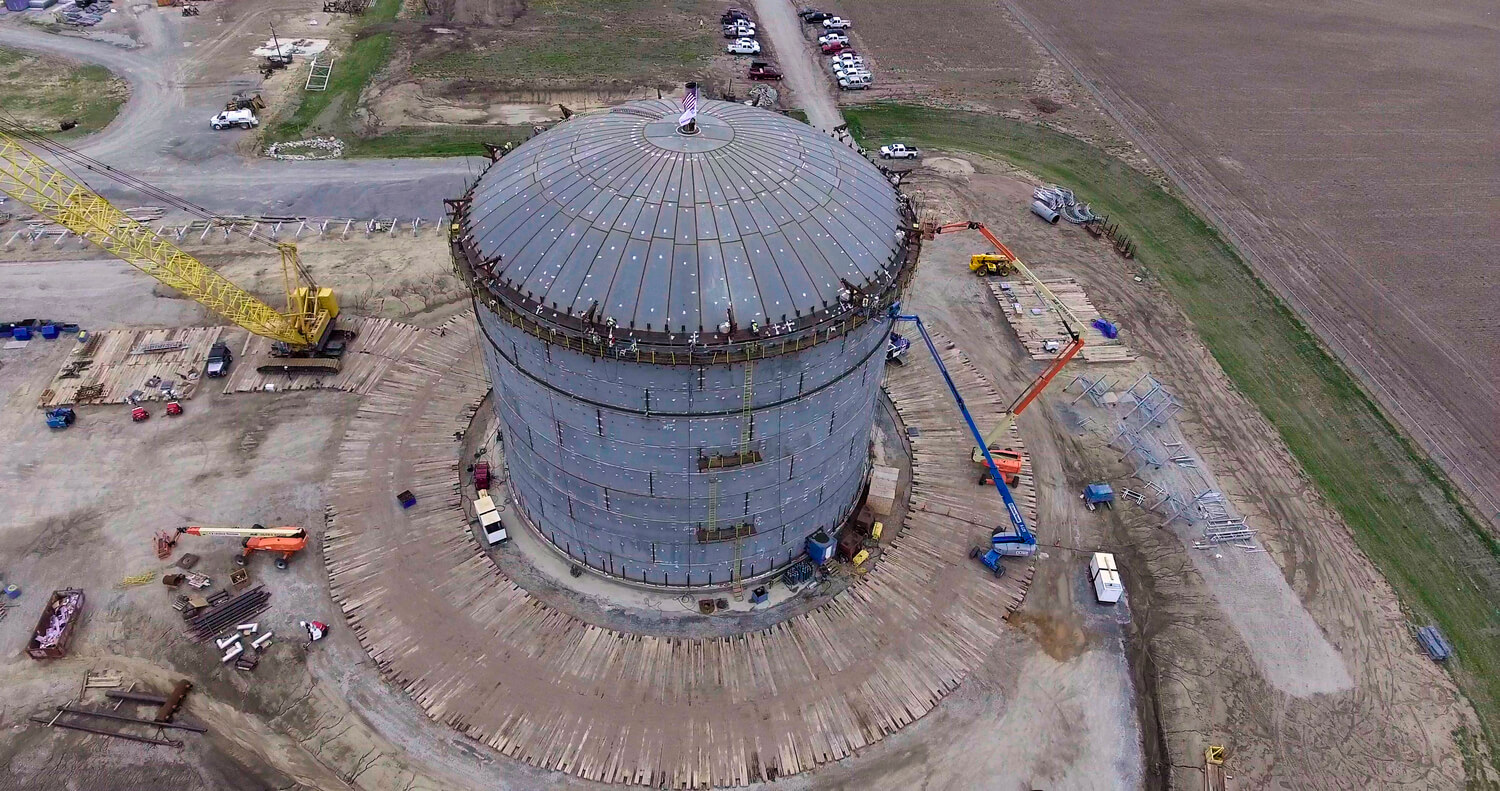Structuring Your Critical Infrastructure Project Contract: EPC vs. EPCM
Most companies look for outside help when planning and executing major industrial infrastructure projects. Some owner/operators may directly employ engineers or skilled laborers who can complete part
of the project, but few have all of the capabilities required to complete a greenfield capital project or plant expansion from start to finish.
Instead, companies frequently choose to engage a specialty contractor capable of executing all of the services needed for their project. For example, owners looking to build a cryogenic gas recovery plant or
expand a liquid storage tank terminal often choose to partner with a service contractor, like Matrix, to execute their projects.
As you can see, even on similar projects, clients may have vastly different needs from their specialty contractor. At Matrix, we can structure the scope of our work in a variety of ways. This provides
maximum flexibility for our clients while still keeping you in control of budget and schedule. Each project and contract is unique, but most projects fall under two broad approaches: EPC or EPCM. We’ll take a look at some of the differences between the two contracts and the advantages of each option for owners/operators.
EPC: Engineering, Procurement and Construction
An Engineering, Procurement and Construction (EPC) contract is the most common type of contract in the industry. When services also include full commissioning, it is often referred to as “turnkey.” The idea being that the client can simply, “turn the key” to begin operations once the contractor has completed their work.
This approach is particularly beneficial to an owner who does not have the resources, labor or expertise to complete or even manage the project themselves. The EPC structure provides a single point of responsibility that the owner can go to for project changes or if an issue needs to be addressed.
Fewer interfaces mean that EPC projects provide more efficient communication. The contractor can communicate internally within their organization instead of going outside of their organization to interact with multiple interfaces. Efficient communication expedites progress and leaves a smaller margin for error.
Additionally, the financial strength and backing of the parent company of a large EPC contractor can be a tremendous benefit for an owner/ operator. The EPC contract shifts risk from the owner to the contractor. It also provides greater budgetary controls because the final price is typically agreed upon before construction begins.
EPCM: Engineering, Procurement, Construction Management
The second type of contract is EPCM. It stands for Engineering, Procurement and Construction Management. In this scenario, the contractor acts as a construction manager and consultant for the project. However, the owner uses internal resources or directly employs contractors to complete different aspects of the project. The owner can hire just a few or all of the contractors needed for the project.
For example, an owner may use an EPCM contractor’s engineering group for the project design, but use another subcontractor’s welders and pipe fitters to complete certain elements of the construction, then hire another subcontractor for a different specialty component.
This approach offers flexibility for the owner’s project. The owner can structure the partnership in the way that best suits the interests of their project. However, the management of this project approach will require that the owner have appropriate internal resources to manage the subcontractors.
EPCM contracts also allow the owner to utilize internal resources for any part of the project. If the owner chooses to hire out some of the work, it may also offer cost savings if they are able to negotiate contracts with individual vendors.
Choosing the Right Contract
EPC and EPCM contracts both offer advantages for owners. EPCM may provide cost savings, but that is balanced by the fact that the owner will need to commit significant resources to an EPCM project. Owners need to consider if their resources would be better invested elsewhere in the business.
Matrix Service Company provides both types of services for their clients. Construction-led engineering, procurement, fabrication and construction management is led by Matrix Service, while engineering-led project management comes from our sister division Matrix PDM Engineering. We can assist with either contracting structure.
However you decide to structure your project, you want to work with a contractor you trust. Matrix has the reputation and experience to complete your project with integrity.
